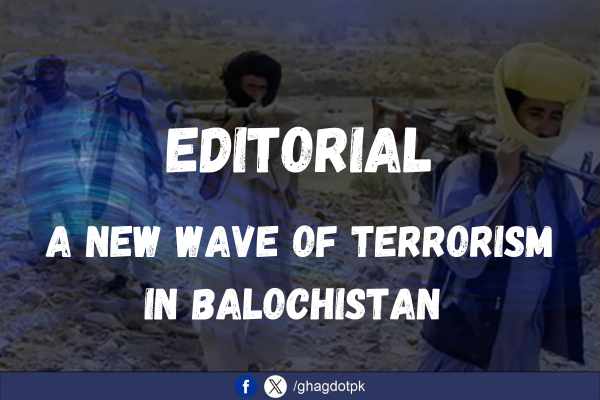Balochistan, like Khyber Pakhtunkhwa, has been gripped by turmoil and instability for years. The two provinces’ geographical prominence has led internal and external proxies, as well as other anti-state groups, to pursue war and terrorism, as both are endowed with vast natural resources. On the other hand, past erroneous policies and some deprivations contributed significantly to the development of resistant attitudes in this area.
Although ongoing tension in Balochistan has increased since 2005, and in addition to Baloch separatists, religious extremist groups like TTP and Jundallah have also been very active here, the number of attacks in the last three years, like in Khyber Pakhtunkhwa, has increased dramatically, and the systematic planning under which the attacks were carried out in about ten different areas of the province yesterday has not only caused great suffering to the state but also to the entire community. Approximately 50 citizens, including 14 security officers, were killed, and 25 vehicles were burned. On the other side, the military has killed 22 terrorists and is conducting search and strike operations in several places. Ordinary laborers from Punjab were mercilessly martyred, following formal recognition. The Baloch Liberation Army not only claimed responsibility for these attacks but also called the Baloch people to conduct a war against the state along the lines of the TTP.
We must consider the timing of these horrifying attacks. Since the friendly country of China’s army chief was visiting Pakistan on the day these attacks took place, numerous gatherings and celebrations were planned for him. China, which is not happy with India or some other neighbors along with the superpower, is investing billions of dollars in Pakistan for Gwadar Port and CPEC. As a result, following these attacks, the Indian mainstream media continuously questioned Gwadar, CPEC, and Pak-China relations, advising China and others not to invest in Pakistan, while on the one hand running a campaign to create the impression of rebellion in Balochistan through fake news and comments.
A few months ago, similar incidents occurred in Balochistan. A major team led by Iran’s foreign minister has arrived in Islamabad. This demonstrates that very important anti-Pakistan forces are involved in all of this bloodshed and dirty game, and they are carrying out systematic planning to destabilize Pakistan, to create disputes or sabotage important projects related to its development, to accomplish this, they have been using political and resistance groups with a narrative of disenfranchisement.
There is no doubt that Balochistan has faced discrimination at various times, but such resistance or brutality cannot be justified under these circumstances. Ironically, some of the state’s disgruntled constituents not only took to social media to express their joy at the brutal massacre of the workers who had been targeted in the Punjab hostilities but also followed the same line that the Indian media had taken this issue as part of a regular campaign during the last two days.
State officials labeled the incidents as open terrorism, calling it a series of conspiracies against Pakistan, and promised that the groups involved and their patrons would be dealt with harshly, but the said circles routinely made every effort to create hatred and distrust among the leading nationalities of Pakistan, which can only be regretted.
Given this, it is imperative to reassess the threats to national security, devise a solid plan, act quickly, and deal decisively and forcefully with those who are accountable for these horrible and tragic events and their guardians. Furthermore, these “keyboard warriors” should be firmly banned for spreading false information on the pretext of human rights and expression. They disseminate false information in addition to spreading false news for political point scoring. Rather, they do not even denounce such acts in the context of humanity, instead establishing alienation and promoting enmity amongst different ethnicities and provinces. There is nothing wrong with raising one’s voice for their rights, and many political and social circles do so from time to time; however, all of these activities should be carried out peacefully, and efforts should be made not to pave the way for any external agenda, as Pakistan is facing an invasion by many proxy forces.






